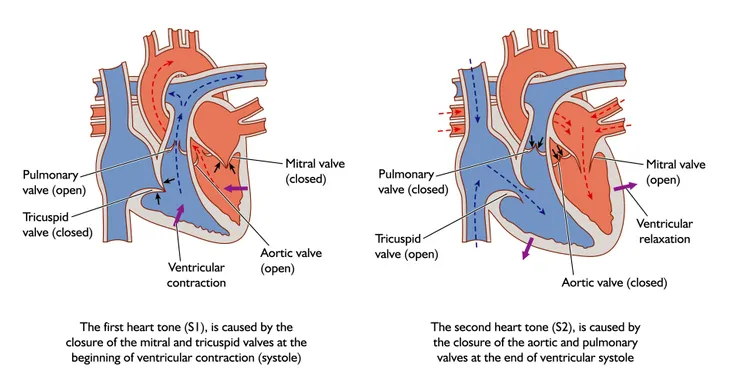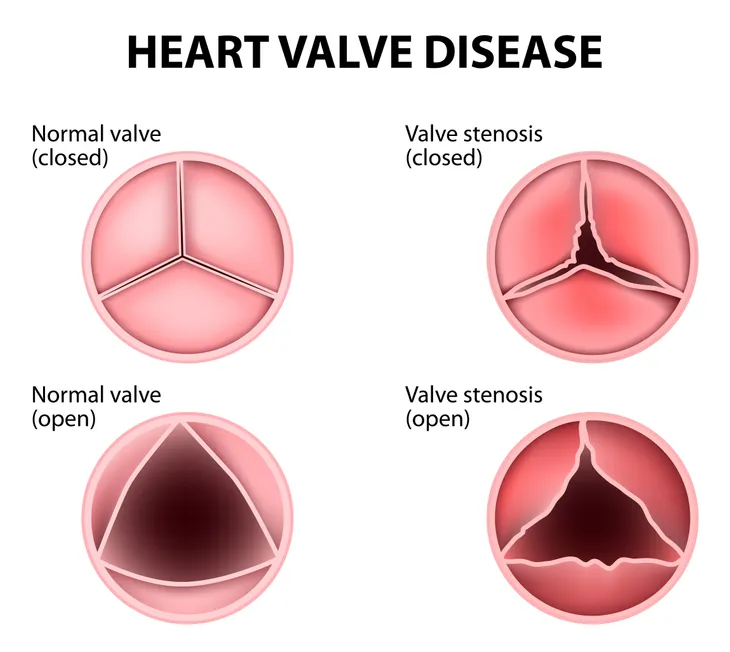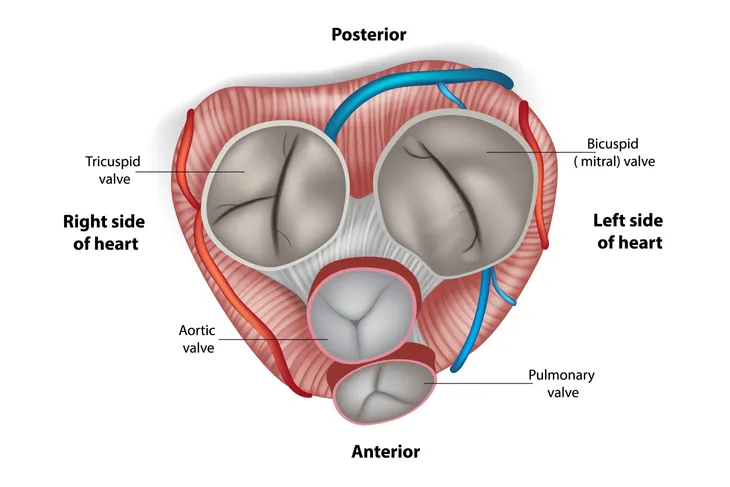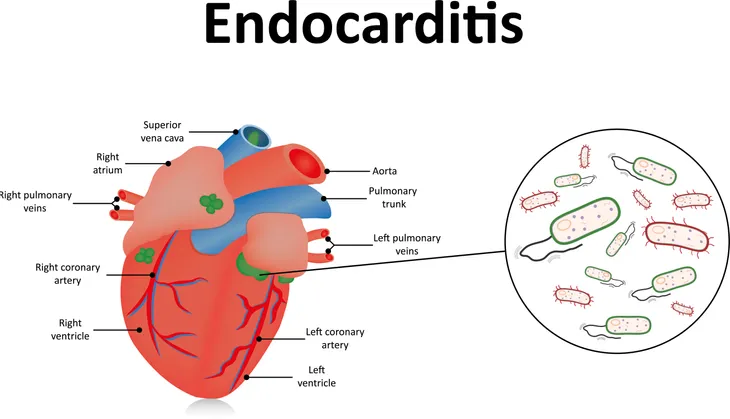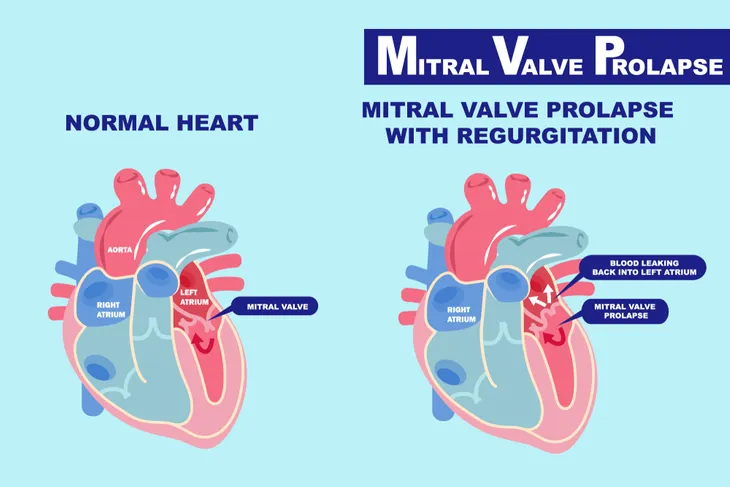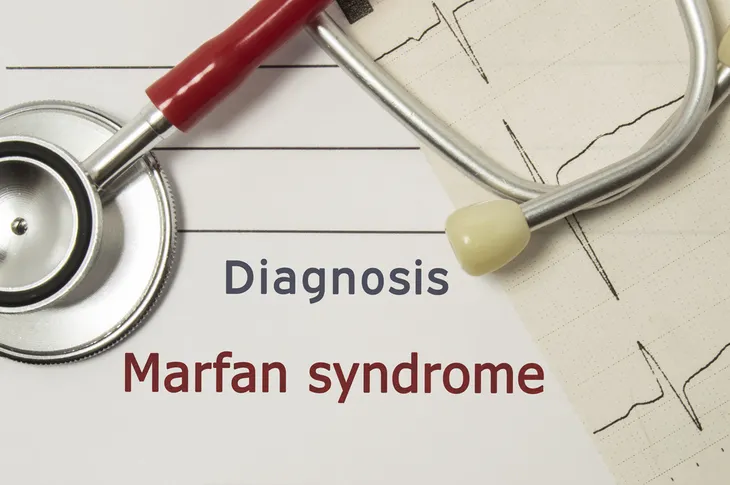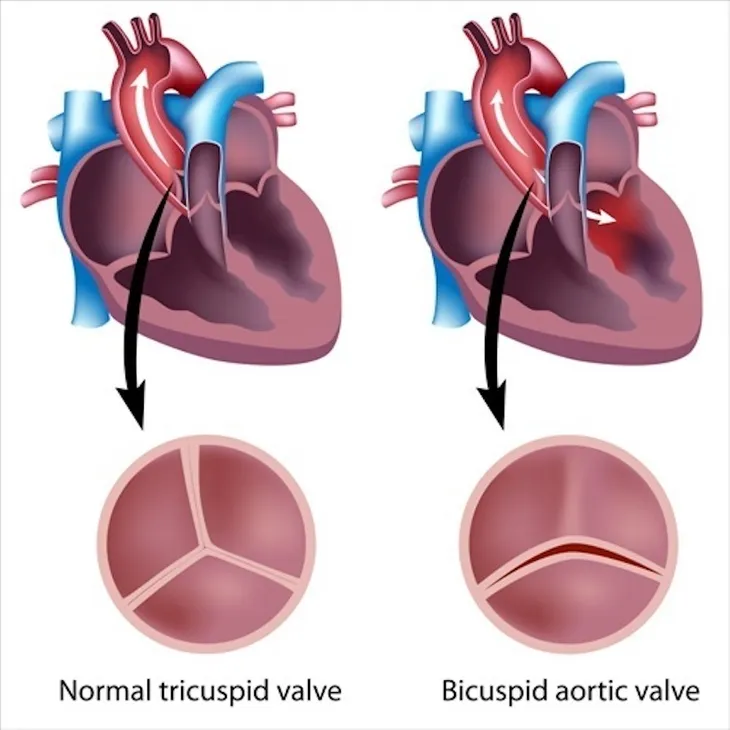Anytime a person has something wrong with their heart, it’s scary. Our heart is such a powerful organ, one that seems to sit at the center of our wellbeing and functioning. Unfortunately, it’s also quite fragile. People are often born with heart problems, but they can also develop them overtime, or in rare cases, develop them seemingly out of nowhere. One condition that is somewhat common and often treatable is heart valve disease.
To learn more about this condition, let’s take a look at the causes and risk factors of heart valve disease…
1. What is Heart Valve Disease?
Heart valve disease is when one or more of a person’s heart valves aren’t working properly. “Your heart has four valves that keep blood flowing in the correct direction. In some cases, one or more of the valves don’t open or close properly,” writes the Mayo Clinic. “This can cause the blood flow through your heart to your body to be disrupted.”
While it sounds serious, there are many people who have it to a varying degree and don’t even realize it. Whether or not they need treatment depends on the severity of the issue, the type of valve disease, which valves are affected, and their symptoms. The source notes that treatment can include either medication or even surgery to repair or replace the valve.
Causes
2. Congenital Valve Disease
Oftentimes, when a condition is congenital, it means that it developed before birth. In the case of congenital valve disease, the issue is usually localized to the aortic or pulmonic valve. Congenital valve disease is often caused by valves that are the wrong size, “have malformed leaflets, or have leaflets that are not attached correctly,” writes WebMD.
3. Bicuspid Aortic Valve Disease
Bicuspid aortic valve disease is a congenital valve disease that only affects the aortic valve, says WebMD. People with this condition will have only two leaflets, or cusps, on their aortic valve instead of three. Missing even just one of these leaflets can cause the valve to malfunction, become stiff, and be unable to either open and close properly or not be able to close tightly enough, resulting in a leaky valve.
4. Rheumatic Fever
Acquired valve disease is different from congenital valve disease, because the patient is not born with the problem; it develops due to other circumstances. One of these circumstances is rheumatic fever. This type of fever is a bacterial infection (resulting from strep throat) that was left untreated, says WebMD. Thankfully, as a result of antibiotics, this infection isn’t as common as it once was, and those who do get it are often treated before it develops into rheumatic fever.
“The initial infection usually occurs in children and causes inflammation of the heart valves,” writes the source. “However, symptoms associated with the inflammation may not be seen until 20- to 40-years later.”
The National Heart, Lung, and Blood Institute (NIH) notes that heart valve disease caused by rheumatic fever is not commonly seen, and when it is, it’s often seen in older adults who developed strep throat before antibiotics were available. It’s also present in developing countries where rheumatic fever is more common.
5. Endocarditis
Endocarditis is caused by germs that enter the bloodstream and are carried to the heart. Once they reach the heart, they can infect the inner surface of the heart, including the valves, says NIH. This condition is extremely rare, but when it does happen, it’s referred to as infective endocarditis.
So how do germs enter the bloodstream in the first place? The source explains that this can happen through needles, syringes, or other medical devices that break the skin and gums. “Often, the body’s defenses fight off the germs and no infection occurs. Sometimes these defenses fail, which leads to infective endocarditis.”
If someone who already suffers from heart valve disease develops endocarditis, it will often make their condition even worse. “Infective endocarditis can develop in people who already have abnormal blood flow through a heart valve as the result of congenital or acquired heart valve disease,” writes the source. “The abnormal blood flow causes blood clots to form on the surface of the valve.” This makes it easier for germs to attach themselves to the blood clots on the valve.
6. Changes That Can Occur
According to WebMD, there are some changes that can occur to the heart. “The chordae tendineae, or papillary muscles, can stretch or tear; the annulus of the valve can dilate (become wide); or the valve leaflets can become fibrotic (stiff) and calcified,” explains the source.
7. Mitral Valve Prolapse
Mitral valve prolapse affects about 1- to 2-percent of the population, making it a common condition. It occurs when the leaflets of the mitral valve “flop back into the left atrium during the heart’s contraction,” writes WebMD. This results in stretchy tissue that can result in a leaky valve. Since the condition doesn’t cause any symptoms, it rarely ever requires any treatment.
8. Other Causes
In addition to the causes we’ve already mentioned, there are a few other conditions that have been linked to heart valve disease. The NIH states that heart valve disease can be caused by autoimmune disorders such as lupus, which can affect the aortic and mitral valves. It can also be caused by carcinoid syndrome, which causes tumors to develop in the digestive tract. These tumors can then spread to the liver or lymph nodes, affecting the tricuspid and pulmonary valves.
Marfan syndrome can cause connective tissue disorders and metabolic disorders, such as Fabry disease or high blood cholesterol, all of which can affect the heart valves. Some diet medicines have been linked to heart valve disease, but can be reversed once the medicine is stopped. Lastly, radiation therapy used on the chest to treat cancer can lead to heart valve disease, but the symptoms might not show up until many years later, says the NIH.
Risk Factors
9. Age
The biggest risk factor for heart valve disease is age; it is more common in older adults. While our improved health and medical care is a good thing because it allows people to live a longer and healthier life, it also has resulted in more cases of heart valve disease. “As we age, our heart valves can become lined with calcium deposits that cause the valve flaps to thicken and become stiffer,” says the American Heart Association.
10. People Who Have Been Diagnosed With…
Another common risk factor for heart valve disease are people who have been predisposed or already diagnosed with other heart conditions, such as a heart murmur, a defect in their bicuspid aortic valve, mitral valve prolapse, or any mild form of valve disease, says the American Heart Association. Anyone who has been diagnosed with any of these conditions should regularly check in with their doctor to make sure that their condition doesn’t become any worse. They should also keep a close eye on any of their symptoms in case they become worse, warns the source.
“If surgery is needed to repair or replace a valve, antibiotics might be needed before dental procedures to help protect against endocarditis,” writes the source. You will need to discuss any potential risk factors with your doctor.
11. Born with Two Flaps on Aortic Valve
As we previously mentioned in this article, some people are born with heart issues. One common issue in particular is that the aortic valve has two flaps instead of three, writes the NIH. “Sometimes an aortic valve may have three flaps, but two flaps are fused together and act as one flap,” writes the source. This condition is known as a bicuspid, or bicommissural, aortic valve. “People who have this congenital condition are more likely to develop aortic heart valve disease,” says the source.
12. Be Aware of These Changes…
As we age, we tend to experience some growing pains that are often related to getting older, such as fatigue, reduced energy, and common aches and pains. While these aren’t unheard of and generally nothing too serious to worry about, sometimes they can be related to another underlying health condition. It’s important to be aware of any changes that seem unusual, particularly as we get older. We need to pay close attention to our body. “When the heart fails to pump enough oxygen-rich blood to the body, symptoms may appear,” says the American Heart Association. “Problems like fatigue, shortness of breath, chest pain, or discomfort and lightheadedness can indicate treatable problems related to the heart,” writes the association.

